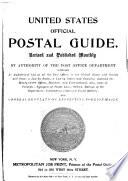John C. Calhoun's Theory of Republicanism
Autor: John G. Grove
Número de Páginas: 224
John C. Calhoun (1782–1850), the South Carolinian who served as a congressman, a senator, and the seventh vice president of the United States, is best known for his role in southern resistance to abolition and his doctrine of state nullification. But he was also an accomplished political thinker, articulating the theory of the “concurrent majority.” This theory, John G. Grove contends, is a rare example of American political thought resting on classical assumptions about human nature and political life. By tracing Calhoun's ideas over the course of his political career, Grove unravels the relationship between the theory of the concurrent majority and civic harmony, constitutional reform, and American slavery. In doing so, Grove distinguishes Calhoun's political philosophy from his practical, political commitment to states' rights and slavery, and identifies his ideas as a genuinely classical form of republicanism that focuses on the political nature of mankind, public virtue, and civic harmony. Man was a social creature, Calhoun argued, and the role of government was to maximize society's ability to thrive. The requirements of social harmony, not abstract individual rights,...







































